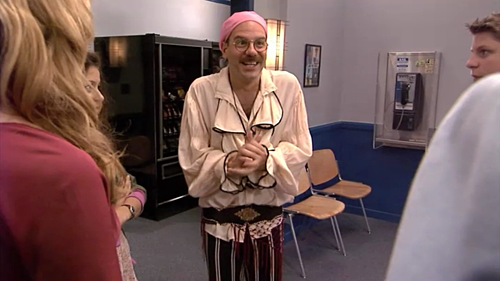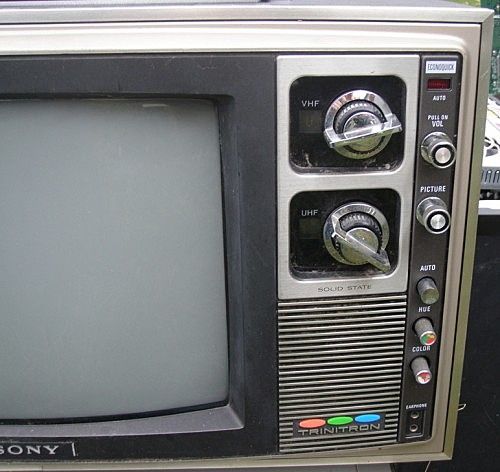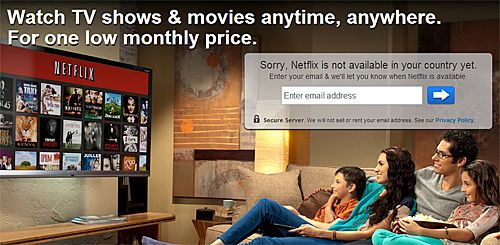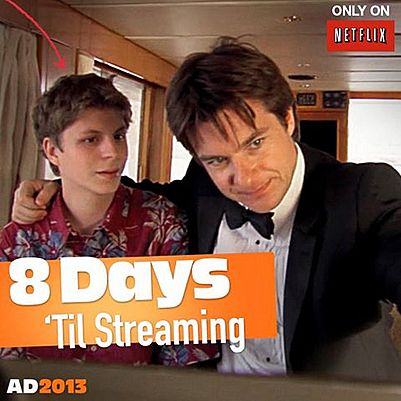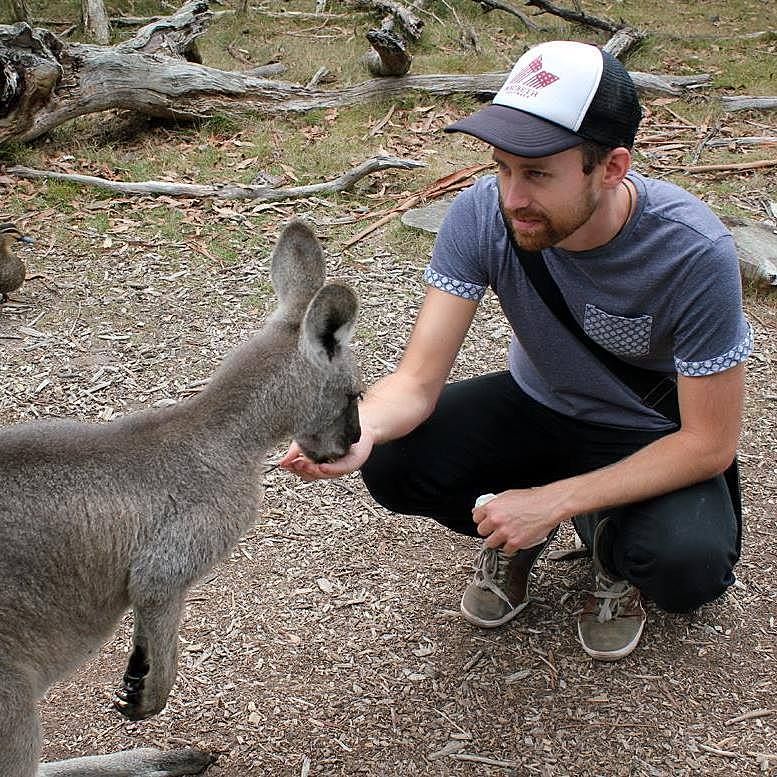They’ve Made a Huge Mistake: Now We’re All Pirates
New Arrested Development is out 26 May, but we can't legally watch it. Matt Harnett looks at how by single-mindedly pursuing profit, TV companies have made pirates out of us all - and why we shouldn't worry about it.
This Sunday, millions of people across North America will draw their curtains, turn off their cellphones and force their children outside, locking and bolting the doors behind them. In Britain and Ireland, hundreds of thousands will pray for impossible snow, ready their juice boxes and consider – hesitantly at first, but with crystalizing intent – whether or not to call in sick Monday. In Latin America, hermanos and hermanas will gather together in mutual gluttony, turn on Spanish or Portuguese subtitles, and laugh, and laugh, and laugh.
We of the antipodes, meanwhile — we belatedly colonised, with our immature entertainment markets and our thick accents and our dim senses of humour — we will not laugh, at first. We will peer.
Like lonesome orphans on Christmas day, we will peer wistfully through frost-coated windows into warm houses as happy families carve the ritual bird and (perhaps) perform the chicken dance. Salty tears will roll down our little orphan cheeks as the first reviews of the meal start coming in. Salon will dub it ‘the perfect masterpiece’ while The AV Club will rate it ‘A+++,’ a nonsensical score but one we somehow know that it deserves. Teeth chattering from the cold, we will trudge back to our dilapidated shacks, connect to our pitiable internet, and then illegally download all the Christmas birds we can eat.
Then we will laugh, and having finished peering, start seeding.
On May 26, season four of Arrested Development will become available to stream for Netflix subscribers. This marks the fourth time the distribution platform-cum-production company has released an entire season of television episodes at once, a new practice in line with modern patterns of consumption. We don’t sip, we gulp; we don’t nibble, we binge.
Alone in the Anglosphere, New Zealand and Australia have been coerced into a Paleo Diet, and, like all people consuming so regressively, our viewing habits remain nasty, brutish and short. Oh, we’ve got our alternatives – Quickflix and Fatso and the full pantheon of pornography-tubes, sure. But we want Arrested Development. We hunger for same-day Breaking Bad (shit, even same-year; as of writing, the SoHo channel’s Facebook page reads: ‘The New Zealand premiere of Breaking Bad Season 5 starts tonight on SoHo, uncut, uninterrupted and in HD. Be watching at 8.30pm!’ It came out in the US last July). Exclusive content like HBO’s Game of Thrones is an irritant to North American audiences, who have to contend with multiple providers siloing their shows to drive up subscriptions (and therefore revenue). It’s no irritant to us, though, it’s an impossibility: we can’t legally pay for these shows even if we want to!
So we don’t bother. We go to The Pirate Bay or TorrentReactor or ISOHunt or whatever and we download furiously, hedonistically. The greatest victory of copyright lobbyists was convincing everyone to use the term ‘piracy’ to describe this practice. It manages to link the act of watching Michael Cera gulp nervously with the violent seizure a vessel and the infliction of rapine upon its crew and cargo, usually with a little light murder to finish. We are nations of bashful pirates.
We’re not forced into piracy. I lied: we can, of course, pay for this content legally. The method is simple. It involves waiting for between six and eighteen months, then buying the box set if we want to binge, or watching television at a certain time each week if we prefer syndication. We’re told that this is the legal and morally correct way to consume media responsibly, and that if we have any respect for the artists whose labour went into crafting these shows, movies, songs, then we’ll abide by the rules.
[caption id="attachment_6804" align="aligncenter" width="500"] Anywhere?[/caption]
A couple of years ago, Netflix’s Vice-President of Product Innovation, Brent Ayrey, a Kiwi, said the company had no plans to open up shop here. He blamed slow internet speeds, which was a facile way to avoid talking about the real problem. Broadcasters in New Zealand already have content agreements with American networks, and it would cost a bunch of money to buy them out – especially when the likely subscriber pool would be comparatively small, and our existing broadcasters would fight like hell to retain syndication rights. Even in Australia, the hassle wasn’t worth the revenue, so they opened in the UK instead.
One option is to trick American websites into thinking you’re visiting from the US. It’s not hard, but most of the good services that do this (virtual private networks, or VPNs) require a subscription, or at least a modicum of technical savvy. Then you’ve still got to pay for the Netflix subscription on top, and it’s only dubiously legal; you’d definitely be violating terms of service agreements, and maybe international law.
This isn’t fair or equitable, but neither is the world a fair nor equitable place. It is, however, deeply hypocritical, because it’s inventing two audiences and then deciding to treat them differently.
Once there were these things called tracts, short religious pamphlets sold cheaply in Europe. You still see them in town: bits of Bible, stapled zineways with photocopied morals, iterated on busy street corners on Friday and Saturday nights. They’ve always been cheap to produce, but the small fee collected from their sale in nineteenth-century Europe was actually used to subsidise free versions of the very same items. These identical-but-free little literatures were shipped to burgeoning imperial colonies, notably New Zealand and Australia, where they proved remarkably popular. Two audiences were thus created: one that paid for a sermon, and one that didn’t. The missionaries thought they were about to convert whole populations, but it didn’t pan out that way. The reason we ate them up was because we honest to God just wanted to learn how to read, and since the only thing that was being supplied freely and in massive quantity were these religious tracts, that’s what we consumed.
Then, this happened: 150 years passed, and The Holy Bible turned into Portlandia.
The global north is still trying to export its culture, and still failing to understand that unless they do it on our terms, the end result isn’t going to be the one they’re looking for; bashful pirates are still pirates, after all.
[caption id="attachment_6803" align="aligncenter" width="401"] Eight days or an eternity[/caption]
Even so, we might decide to indulge our erstwhile overlords. We’ll smile and nod and agree that it is very important to do the right thing, even if that means becoming disenfranchised from popular culture because we’re not allowed to keep up with it.
So. They’ve managed to get us to the dinner table, overflowing though it is with stale food and spoiled condiments, and we're not really that happy about it but we sigh and reach forward to pick up a couple of gross-looking How I Met Your Mother episodes but –
20th Century Fox smacks our hand away, stands over us and screeches “NOT LIKE THAT!”
We’re not meant to binge on this stuff – we’re meant to take our time, savouring each episode independently, only ever consuming at a rate determined by last century’s technology and distribution capability. Until Netflix’s canny decision to push every episode of its in-house shows out at once, didn’t it feel a little like being condescended to? Why an episode each week? Why not one per fortnight? Or one a night? Or a month? The advertising financial imperatives that once underpinned television’s episodic nature have long since been elided by subscriptions and pay-per-view TV, not to mention the internet. There’s no reasonthat Mad Men should be released weekly, yet we largely fail to question why it is.
The arbitrariness of the current system is so passively accepted that a word like ‘binge’ can be used to describe watching more than, say, three hours of TV at a time. Are you ‘binge reading’ a great book you can’t put down until 3am, long after you should’ve been asleep? It seems we can’t get over the notion of TV being a rubbish narrative mode, long after the storytelling in, say, The Wire, should’ve made us question that assumption. Somehow, watching too much of it at once is synonymously as unhealthy as binge-eating. Because of their capriciously weekly delivery, we’re still more tempted to think of television episodes as discrete chunks, bite-sized self-contained movies, than we are the inextricable chapters of a book.
Jim Pagels at Slate suggests:
If you need to catch up with a show, here are the guidelines: Wait a minimum of 24 hours between episodes and at least a couple weeks between seasons. If one TV show doesn’t provide a full night’s entertainment for you, pick out a few programs you’ve been meaning to catch up with and watch one episode of each.
If the urge to masturbate continues, an erection alarm may be fitted. Do not wear clothing woven of two kinds of material. You may beat your wife with a rod, so long as its circumference is less than that of your thumb. Consume television on days not beginning with a letter from the first third of the alphabet, and watch our content but only when it suits us because our convenience is the only sort that matters, what are you, a pirate? Sign our Trans-Pacific Partnership to establish the sovereignty of our law and culture over your own, even though it will extend your duties to us in the form of copyright without their corresponding benefits in the form of services like Netflix.
Who are the pirates, again?
Maybe Netflix is no better than those other big distribution companies, with its didactic prescriptions on who can watch, and where. On the other hand, having let just a few of the right sort into the supermarket, at least they’re letting them browse the aisles and not keeping them out of the deli except for an hour between 8-9pm on Monday nights. Putting up whole seasons at once is a feature that’s both deeply obvious and something you could only do on the internet; it’s still discrimination based on location, but at least the walled garden is open-plan on the inside rather than a maze.
At the end of last year, Netflix’s CEO asked us to
Imagine if books were always released one chapter per week, and were only briefly available to read at 8pm on Thursday. And then someone flipped a switch, suddenly allowing people to enjoy an entire book, all at their own pace. That is the change we are bringing about. That is the future of television. That is Internet TV.
Apart from making business sense, it also feels less blatantly condescending than being told when we can watch what we want to. Netflix might be the first producer/distributor to change up to this model, but it won’t be the last; in a decade, this is the only way we’ll be watching TV.
Perhaps there are great health reasons not to sit in a dark room for a day-and-a-half ordering pizza and forgetting to shower. Mental and economic reasons too: rare is the person who can afford to simply take days out of their lives to become single-mindedly, determinedly sedentary. But there aren’t artistic reasons not to do it, moralising Slate columnists aside. X-Files and Breaking Bad creator Vince Gilligan recently went on the record saying:
I don’t think you’d be sitting here interviewing me if it weren’t for Netflix. In its third season, Breaking Bad got this amazing nitrous-oxide boost of energy and general public awareness because of Netflix. Before binge-watching, someone who identified him- or herself as a fan of a show probably only saw 25 percent of the episodes.
There’s this almost Catholic aspect to binge-watching: the self-denial as you wait for a show you like to be fully released, then the rush of gluttonous fulfilment as you gorge, and then the shallow, dull emptiness as your brain searches for signification in fifteen hours of Buffy – a kind of lingering acid reflux (am I doing Catholicism right?). It’s a religious communion, I’m trying to say, a way of attaining a deeply mystical level understanding with the people who made a show, possibly induced by mania.
Would any faithful fan of Dickens honestly choose to read the truncated instalments of his newest story, published monthly in one of his literary magazines, over simply picking up a copy of Bleak House? Why then have we decided, by dint of TV being a different narrative medium, to compartmentalise how we enjoy it?
Until we’re treated as something more than a tertiary, largely irrelevant audience, we’re under no obligation to be good, fastidious little consumers – except legally, for whatever that’s worth. Let's watch what we want to, when and how we want it, not feel bad about it, and not for a second buy the argument that we're doing something wrong – and remember that taking the time difference into account it’s actually Tuesday you’ll have to call in sick for.

